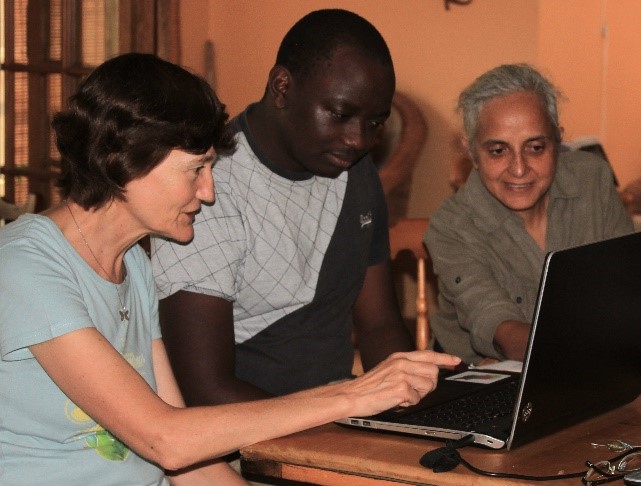Many graduating students receive limited guidance on preparing their CV. With this in mind, we, Drs Helen Barber-James and Sukhmani Mantel, with the assistance of other Freshwater Working Group (FWWG) board members of the Society for Conservation Biology (SCB), developed CV guidelines, a template, and hosted a CV clinic at the 28th International Congress for Conservation Biology in Cartagena, Colombia. Our goal was to bring together the FWWG’s personal experiences to develop guidance for students and early career researchers, while maintaining the individuality in each person’s CV.
We provided the CV guidelines and template on-line, announced its existence, and invited 50 (first come first served) students and early career researchers attending ICCB to send their CVs to the FWWG for review and feedback ahead of the Congress. We distributed announcements using the Society for Conservation Biology (SCB) and ICCB networks and social media platforms. We limited our review to 50 CVs with a submission deadline several weeks ahead of the conference to ensure that there was sufficient time for the reviews.
 |
|
Drs Helen Barber James and Sukhmani Mantel reviewing a student’s CV. |
The FWWG received 23 CVs from students and early career researchers ahead of the Congress, which was lower than anticipated, and included a few last minute submissions which were accepted just after the closing date. Submissions sent more than a week after our posted deadline were not accepted because the review process was well underway. Students whose CVs couldn’t go through the extensive feedback process, were invited to bring their CVs to the Clinic held at the Congress’ Career Fair for general feedback. We divided the 23 CVs among the FWWG board members, and ensured that each received comments from two board members. The 23 CVs reviewed by the FWWG originated from 6 continents; quality varied - with some needing more guidance than others. We returned feedback on each CV to students ahead of the conference, and in most cases, we received very positive responses back from the participants, some of whom visited the Career Fair booth and personally thanked us.
Our CV guidelines and template were available in printed form for ICCB Career Fair attendees. We also fielded brief questions about CVs from anyone who stopped by our booth. At least 30 attendees took a copy of our template for reviewing their own CVs. In addition, several attendees who visited our booth during the Career Fair highlighted that they had not been aware of the CV Clinic, noting that they would have participated had they known about it. A few attendees also brought their CV’s for our review, and many requested submitting their CV for detailed feedback, which we had to unfortunately refuse.
In addition to looking over a few CVs, we also held interesting discussions with Career Fair attendees. Some attendees expressed concern to us about the difficulty in securing employment following their degrees, and we often ended discussions with supportive guidance. Other attendees expressed an interest, and the need for, internships to gain practical experience needed for post-degree professions. During these conversations with attendees, we shared our experiences from South Africa, where the National Research Foundation (NRF) places young graduates into an appropriate working environment, for one year, according to their area of qualification. Thus, an unexpected outcome from the CV clinic was hearing from, and engaging with, attendees’ about their career interests, and the opportunity to discuss with attendees about work placement and internship opportunities.
Now that ICCB has finished, we are reflecting on the CV Clinic, and considering next steps. The first question that came to our minds was whether or not the CV clinic was valuable, and if it would be worth repeating in the future. We are also interested in exploring how we could have done some elements of the clinic differently, and also how we could improve (or not) our communication strategy to reach and engage more students and early career researchers. We have also given thought to alternative approaches, and one idea is to create a page on the SCB website dedicated to resources for career development, which could include our CV guidelines and template, and multiple opportunities for students to receive feedback on their CVs from SCB professionals. Regardless of future directions, we consider this first CV Clinic to have been a success (based on the positive responses and engagement that we had with attendees), even if we didn’t reach as many people as we had initially envisioned. Finally, we plan to reach out to Career Fair attendees to gain their perspectives.
To close, we would like to thank the FWWG board members who reviewed CVs, SCB staff who supported the creation of the CV Clinic. Last, but not least, we would like to thank FWWG’s President Dr Stephanie Januchowski-Hartley who spent hours running the Pozible campaign on Connecting Conservation Colleagues, and to thank all of the campaign supporters who made the clinic and our trip to Colombia possible. THANK YOU! A little (from many) can go a long way.